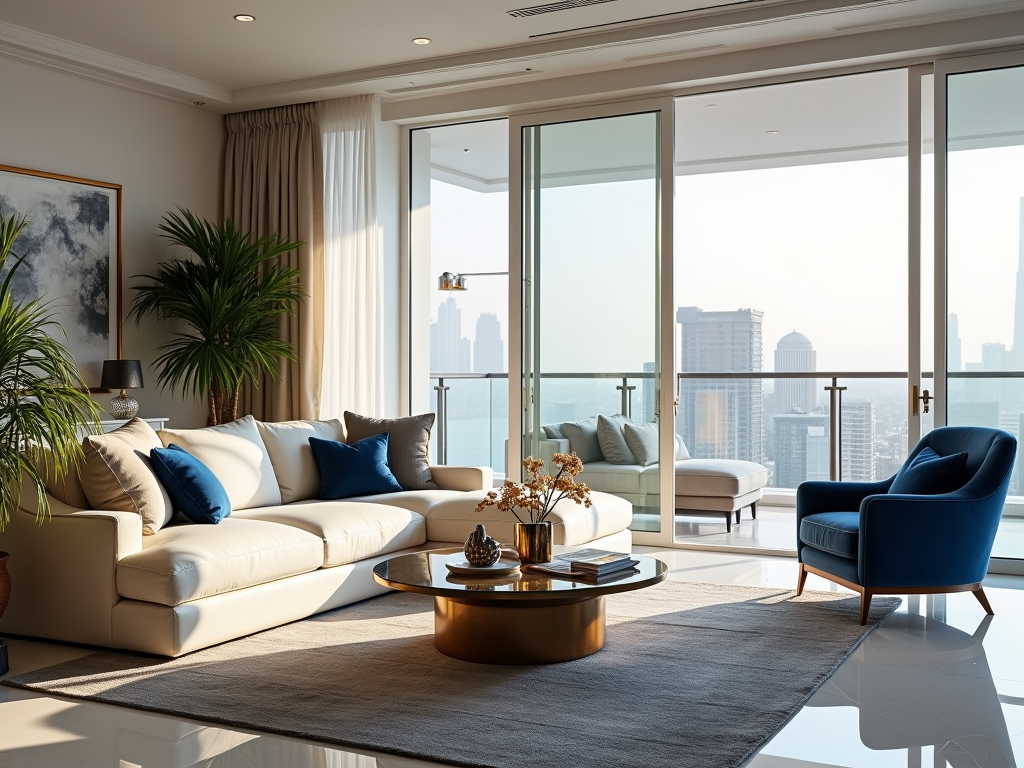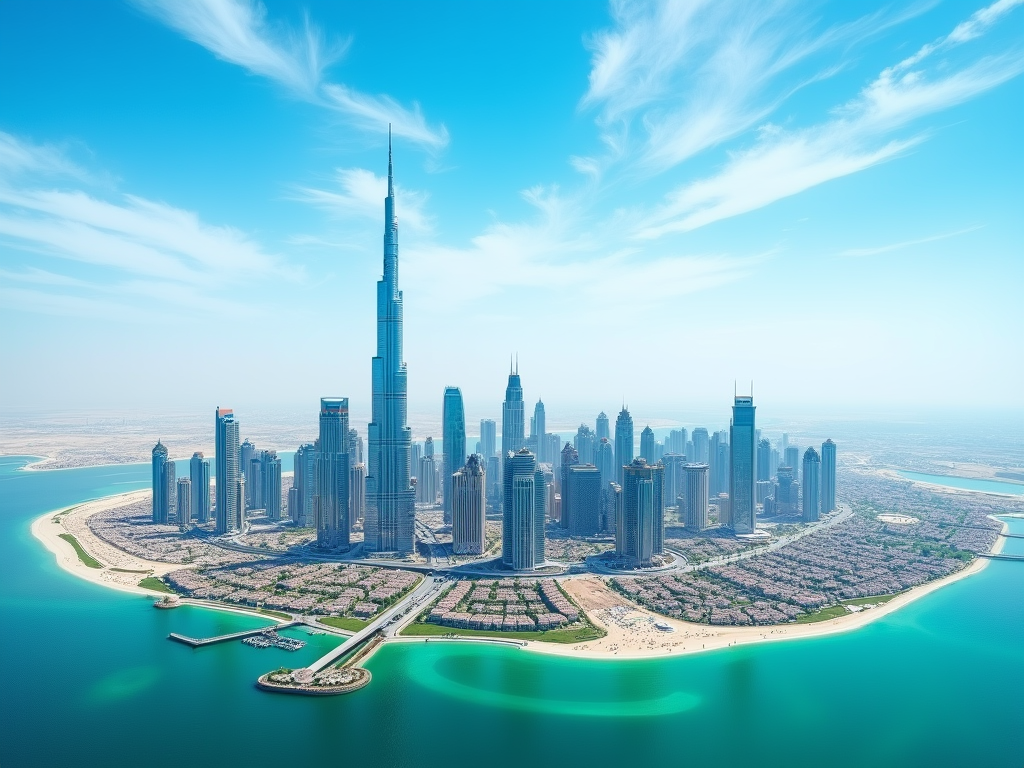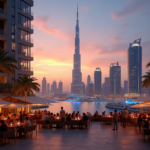Over the last decade, Dubai’s property market has witnessed a remarkable transformation, influenced by various economic, social, and regulatory changes. From a booming market peaking in 2014 to subsequent adjustments and a recent stabilization, understanding the evolution of property prices in Dubai reveals not just a financial narrative, but also a glimpse into the city’s broader development trajectory. This article delves into the significant trends, key factors affecting property prices, and projected future developments within the real estate sector in Dubai.
Historic Price Trends: A Rollercoaster Ride

The past decade has been marked by fluctuating property prices in Dubai, with a range of highs and lows reflective of broader economic conditions. Initially, the market enjoyed a significant upswing between 2012 and 2014, driven by a recovering global economy, increased foreign investments, and the anticipation of the 2020 Expo. Following this peak, however, prices began to soften as supply outstripped demand and investor sentiment shifted.
Between 2015 and 2019, the market experienced a downturn, with property prices declining by as much as 25% in some areas. This phase marked a correction period where developers faced challenges with unsold inventory and rising construction costs. Key to understanding this phase is acknowledging the interplay of governmental policies, including regulatory adjustments that aimed to stabilize the market.
After 2019, the COVID-19 pandemic brought new uncertainties, but also unique opportunities, such as attractive deals and mortgage rates that buoyed buyer interest. By 2021, as the world began to recover, property prices in Dubai started to rebound, leading to renewed optimism in the market. This recovery continued into 2022 and 2023, with projections suggesting a further stabilization in prices.
Factors Influencing Property Price Changes

The dynamic nature of Dubai’s property prices can largely be attributed to several interrelated factors that have shaped the real estate landscape. Understanding these can aid in predicting future trends and making informed investment decisions. Here are the primary influences:
- Economic Stability: The overall health of the global and local economy directly affects property demand and pricing.
- Government Policies: Initiatives such as visa reforms and foreign ownership regulations have encouraged international investment.
- Infrastructure Development: Ongoing urban improvements and transport expansions enhance property attractiveness, leading to price growth.
- Market Sentiment: Investor and consumer confidence levels can cause rapid changes in demand, thereby influencing prices.
- Global Events: Major global events, such as the World Expo 2020, play a pivotal role in stimulating interest and investments in Dubai’s property market.
Throughout the last decade, certain regions in Dubai have shown significant growth in property prices. Identifying these hotspots is crucial for potential investors or homebuyers looking to maximize their investments. Here are some of the areas that have seen considerable price increases:
- Dubai Marina: Known for its waterfront views and luxury lifestyle, price appreciation remains strong.
- Downtown Dubai: Home to iconic landmarks like the Burj Khalifa, demand here drives premium pricing.
- Jumeirah Village Circle (JVC): Offering more affordable housing options while still being centrally located has attracted many buyers.
- Mohammed Bin Rashid City: This area combines luxury living with family-friendly amenities, resulting in growing interest and rising prices.
- Business Bay: Recognized for its commercial appeal, the area is becoming increasingly popular for both residential and investment possibilities.
Current Market Overview
As of 2023, the property market in Dubai is characterized by stability, with a renewed sense of optimism among investors and buyers. After experiencing substantial price corrections, the market appears to have found a balance, with prices stabilizing across various sectors. Demand for luxury real estate is particularly robust, driven by wealthy international buyers seeking second homes.
In addition, property developers are increasingly focusing on sustainability and smart living, factors that resonate well with modern buyers. The rise of technology-driven real estate solutions is changing how properties are marketed and sold, making it easier for buyers to find their ideal homes.
Moreover, ongoing infrastructure projects, including advancements in public transportation and new tourism attractions, contribute significantly to the attractiveness of the Dubai property market. As investors regain confidence and more expatriates are drawn to the city, Dubai’s real estate landscape holds promise for continued growth and opportunity.
Conclusion
The evolution of Dubai’s property prices over the last decade highlights the city’s resilience and adaptability in the face of economic changes. Understanding the historical context, market dynamics, and key influencing factors equips potential buyers and investors with the insights needed to navigate this ever-evolving landscape. As Dubai prepares for a new era of growth, the property market remains a focal point for investment, innovation, and lifestyle enhancement.
Frequently Asked Questions
1. What were the key periods of price increases in Dubai’s property market?
The key periods of price increases were predominantly between 2012 and 2014, coinciding with economic recovery and the anticipation of Expo 2020.
2. How have government policies impacted property prices?
Government policies, including visa reforms and regulatory changes allowing foreign ownership, have enhanced Dubai’s attractiveness to international buyers, contributing to price increases.
3. Which areas are considered prime investment locations in Dubai?
Prime investment locations include Dubai Marina, Downtown Dubai, Jumeirah Village Circle, Mohammed Bin Rashid City, and Business Bay.
4. What current trends are shaping Dubai’s real estate market?
Current trends include a focus on luxury living, sustainability, smart technology integration, and a stable demand for residential and investment properties.
5. What is the future outlook for property prices in Dubai?
The future outlook for property prices in Dubai is positive, with expectations of stability and continued growth supported by ongoing development and infrastructure projects.


